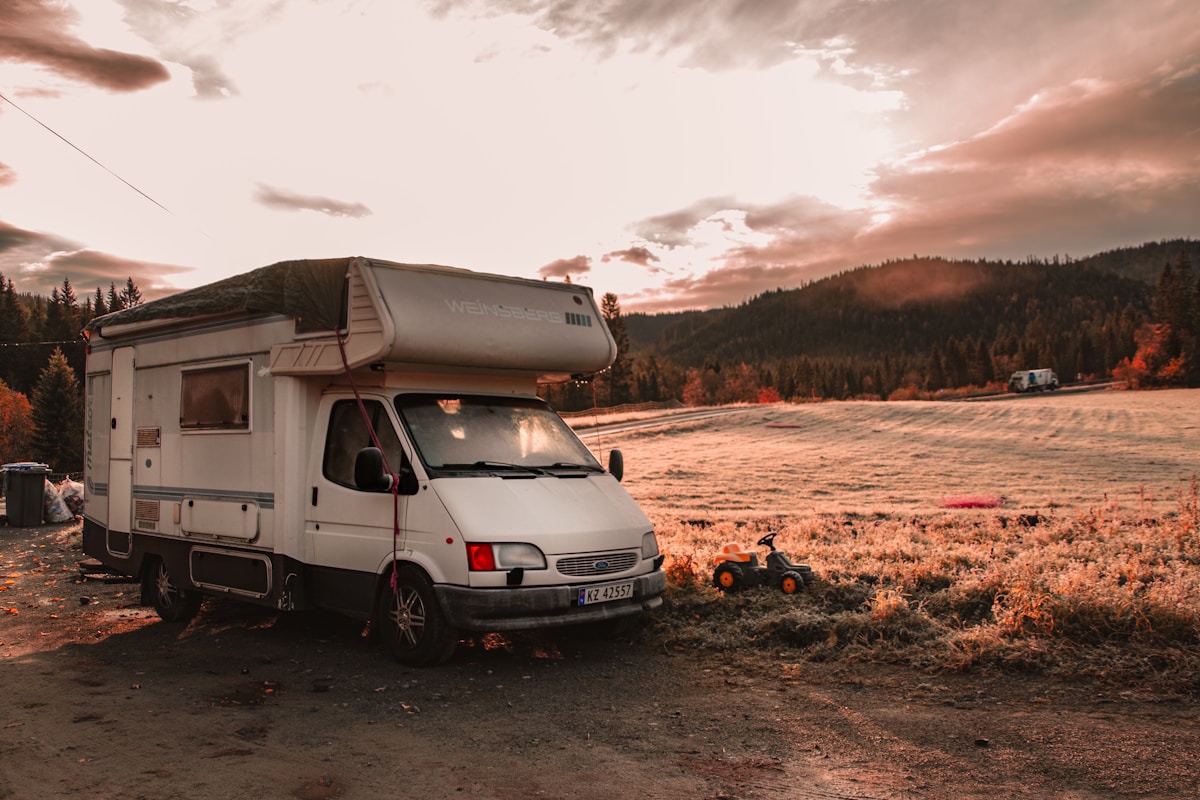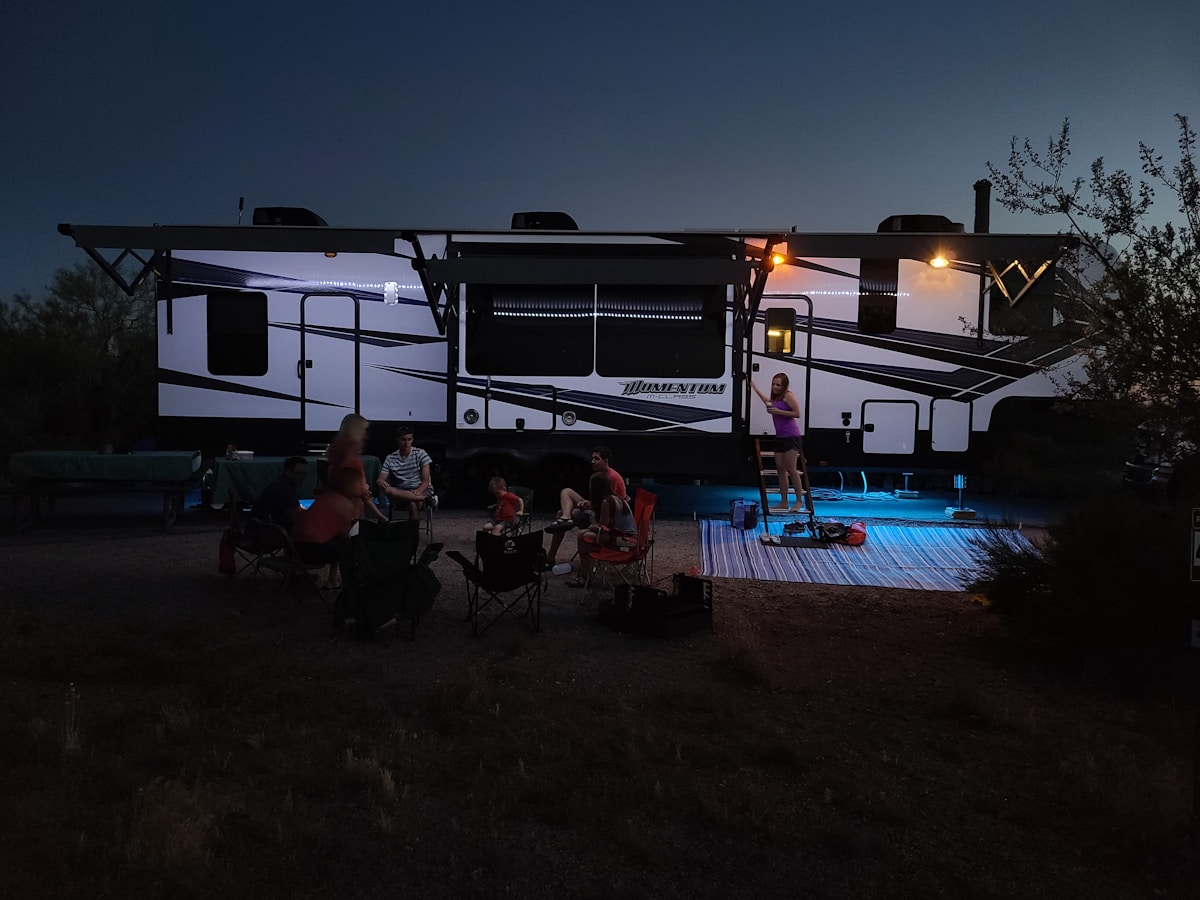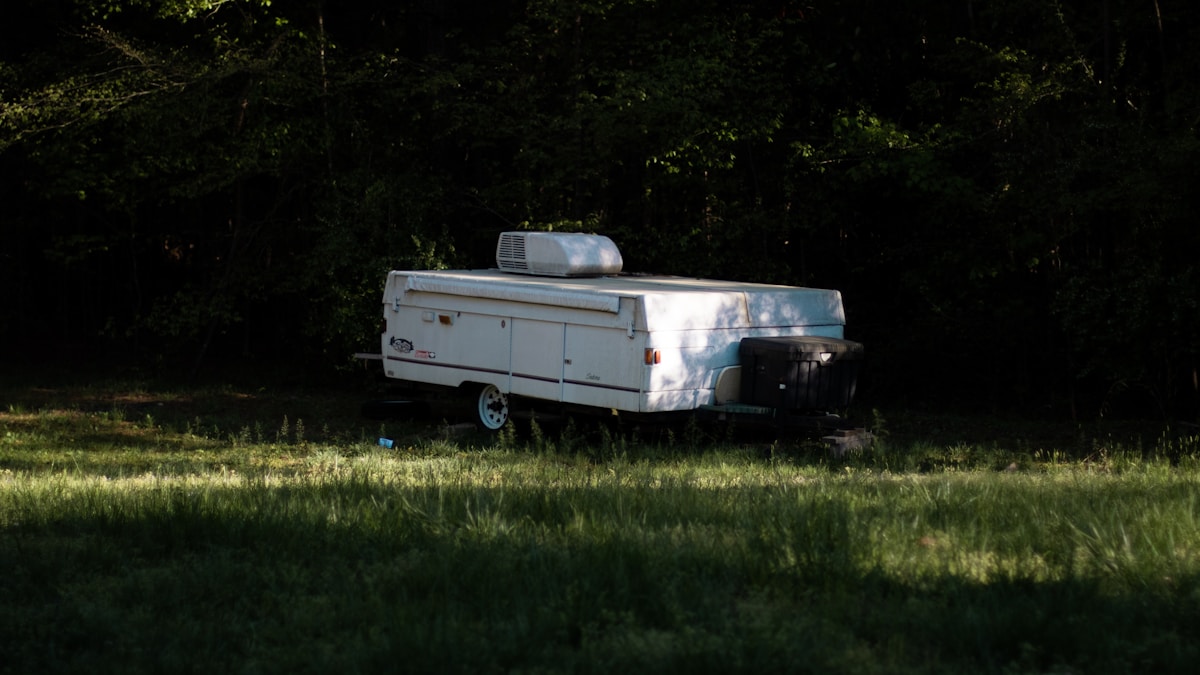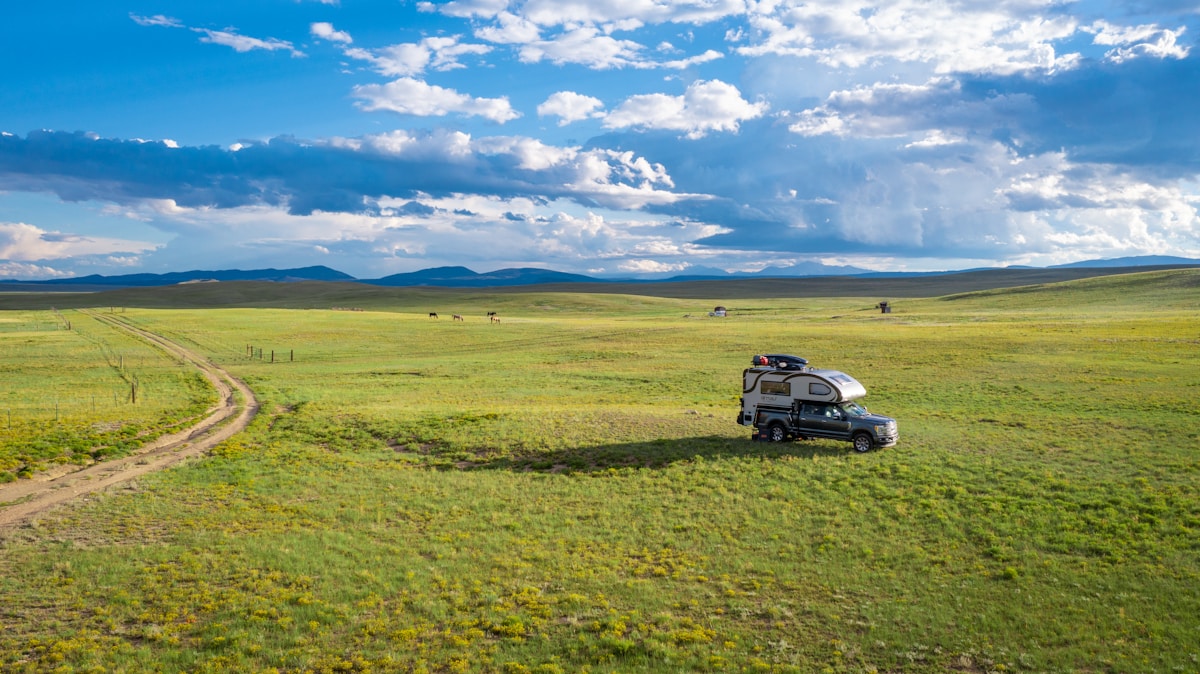Are you in the market for an ideal RV that matches your family’s camping style but finding it difficult to decide? The options vary widely, from luxury motorhomes to lightweight teardrop travel trailers, finding the perfect style for your needs can become quickly complicated. In this comprehensive guide, we will explore various RV types, including motorized and towable RVs, such as travel trailers, fifth wheels, and toy haulers, covering the unique pros and cons that can cater to different camping styles and requirements. This will help you navigate the wonderful world of RVs, breaking down each type and its associated benefits and drawbacks.

Class A Motorhomes: The Luxury Apartment on Wheels
These large, bus-like vehicles are known for their homey feel and advanced features. Available in either gas or diesel versions, these motorhomes come with a wide array of amenities such as residential appliances, spacious bathrooms, high-end electronics, and plush furniture. Most are also equipped with multiple full-length slide-outs, creating an even roomier environment than a conventional travel trailer.
However, their size, usually 30 to 40 feet, can make them challenging to park and maneuver. Also, they may not deliver the best gas mileage. But for those who value all the amenities of home combined with space and comfort on their long-term journeys, Class A motorhomes could be the perfect match.
Pros of a Class A Motorhome:
- Spacious living quarters with all the comforts of home, including full-sized kitchen, bedroom, and bathroom.
- Capable of accommodating large families or groups r up to ten people or more.
- Often includes luxury features such as washer/dryer units, satellite TV, and high-end kitchen appliances.
- Comes with large storage capacity.
Cons of a Class A Motorhome:
- Typically the most expensive type of RV, both to purchase and to maintain.
- Can be challenging to drive and park due to its large size.
- Less fuel-efficient compared to smaller RVs.
- May not be able to access certain campsites or roads due to size restrictions.

Class B Motorhomes: Nimble Navigators
Class B Motorhomes, a popular type of gas engine motorized RVs, offer an all-in-one camping solution without the need for an additional tow vehicle. Typically called camper vans or "B-Vans", the Class B is built on a van chassis and provides a comfortable home on wheels for adventurous travelers. Their compact size and easy driveability make them great for urban and off-road explorations alike. Don’t let their size fool you - Class Bs are ingeniously designed to include everything you need, from foldable amenities in wet baths to transforming seats.
Ideal for solo travelers and couples, these vehicles can offer limited space for larger groups and long-term living.
Pros of Class B Motorhomes:
- Typically considered the easiest of RV styles to drive and park than larger motorhomes.
- More fuel-efficient and easier to maintain than larger RVs.
- Can access a wider variety of camping locations, including urban areas.
- Often includes basic living spaces with necessities such as a small kitchen and bathroom.
Cons of Class B Motorhomes:
- Limited living and storage space may not be ideal for large groups or long trips.
- Typically lacks the amenities and comfort features of larger RVs.
- The limited floor space can feel cramped, especially when the weather doesn't allow for outdoor activities.

Class C Motorhomes: Compact Comfort
Built on a truck chassis, Class C motorhomes, also known as Class C RVs, are smaller and easier to drive. They are versatile and suitable for larger families, offering a distinctive cab-over profile, gas or diesel engine options, and amenities similar to Class A motorhomes but on a smaller scale. While the Class C may look compact from the outside, you’ll be surprised by the amenities they pack in, including kitchens, bathrooms, and slide-outs. Their smaller size makes them ideal for visiting state parks and remote locations where larger RVs can’t go.
Their recognizable “cab-over” profile adds an extra bed or storage space, making the Class C a great choice for families or groups of friends. However, despite being more fuel-efficient than Class A motorhomes, they can still be heavy on gas consumption.
Pros of a Class C Motorhome:
- Offers a balance between the size and amenities of a Class A motorhome and the maneuverability of a Class B motorhome.
- Typically includes a separate bedroom area, a plus for privacy.
- Often has a sleeping area above the cab, providing additional sleeping space.
Cons of a Class C Motorhome:
- While more maneuverable than Class A motorhomes, still more challenging to drive and park than smaller RVs.
- The truck chassis tends to lead to a rougher drive compared to other motorized RVs.
- Less fuel-efficient than Class B motorhomes.

Fifth Wheel Camper: Roomy Residence
For those who prioritize space, fifth wheel campers are a dream. They are typically the largest type of towable RV and may require a special hitch located in the bed of the truck. Despite needing a capable truck for towing, fifth wheels offer unmatched spaciousness and flexibility thanks to the varying designs with options including multiple slide-outs. With the capability of accommodating large families or groups, fifth wheels can feel like a residential home. Fifth wheel campers are a distinguished type of towable RVs, known for their unique hitching requirements and spacious design that sets them apart.
Pros of Fifth Wheel Campers:
- Offers spacious living area, often with high ceilings and multiple slide-outs.
- Separate bedroom area provides additional privacy.
- Hitching design provides stability while towing.
- Ability to detach from the tow vehicle can be a perk for local travel.
Cons of Fifth Wheel Campers:
- Requires a pickup truck with a special hitch to tow.
- Can be tricky to maneuver, especially in tight spaces.
- Takes up a lot of space, which might be an issue for storage when not in use.
- Some may find the steps to the raised front section challenging.

Toy Haulers: Adventure Enthusiasts' Favorite
Are you an adrenaline junkie with a lot of outdoor equipment? Toy haulers are designed with a large cargo area to accommodate your motorcycles, ATVs, and more. They can either be towable or motorized, providing comfortable living space and a garage in one vehicle.
However, they can be heavy to tow and may require a heavy-duty truck for transport.
Pros of Toy Haulers:
- Dual-purpose design provides both living space and a garage for ATVs, bikes, or other "toys."
- Garage space can often be converted into additional living or sleeping space.
- Typically includes tie-downs and a large rear door that doubles as a ramp for easy loading and unloading.
- Tend to be built more ruggedly, suitable for off-road or remote camping.
Cons of Toy Haulers:
- The combined weight of the RV and your "toys" can be substantial, requiring a heavy-duty tow vehicle.
- The living space can be smaller compared to other RVs of a similar size, due to the garage area.
- Noise and fumes from the garage area can sometimes infiltrate the living space.
- If you're not hauling "toys," the additional garage space might be unnecessary.

Travel Trailer RV: Versatile Voyager
Travel trailers are highly popular due to their versatile designs and sizes. With a range of floor plans and styles, these RVs offer something for every type of camper. They are easier to detach and set up at the campground than fifth wheels and allow for separate vehicle use.
However, they can still be large and require a capable towing vehicle.
Pros of Travel Trailers:
- Wide range of sizes and floor plans to suit various needs and budgets.
- Can be towed by a variety of vehicles, not just pickup trucks.
- Detachable from the tow vehicle for local exploration.
Cons of Travel Trailers:
- Stability while towing can be a concern, especially for larger models.
- Requires a vehicle with sufficient towing capacity.
- The extra length of the trailer can make driving and parking more challenging.

Teardrop Campers & Tiny Trailers: Compact and Cozy
Teardrop trailers are perfect for weekend travelers who prioritize simplicity, efficiency, and ease of travel. Despite their small footprint, they often include a bed and a basic kitchen area typically located at the back. Their lightweight design makes them towable by most vehicles, including small SUVs and sometimes even cars.
While teardrop campers may not offer the level of luxury and amenities found in larger RVs, their unique charm and straightforward functionality have gained a following amongst minimalist and eco-conscious travelers.
Pros of Teardrop Campers & Tiny Trailers:
- Lightweight and easy to tow, even with smaller vehicles.
- Minimalistic design promotes an eco-conscious lifestyle.
- Lower cost than most other types of RVs.
Cons of Teardrop Campers & Tiny Trailers:
- Limited living and storage space.
- Typically lacks amenities such as a bathroom and full kitchen.
- Might not be comfortable for long-term trips or inclement weather.

Pop-Up Camper: A Tent with a Twist
Pop-up campers, also known as tent trailers, are a fantastic option for those transitioning from tent camping to RV camping. When closed, they're compact and easy to tow, but once at the campsite, they expand upward and outward, creating a large living space that can include beds, a dining area, and sometimes even a small kitchen and toilet.
While they offer a more authentic camping experience closer to nature, their canvas sides may not provide the insulation needed for camping in colder seasons.
Pros of Pop-Up Trailers:
- Lightweight and compact when folded, making it easy to tow and store.
- Expands to provide more living space when set up.
- Closer to nature compared to fully enclosed RVs.
Cons of Pop-Up Trailers:
- Setting up and breaking down the camper can be time-consuming.
- Lack of insulation can make it unsuitable for colder weather.
- Canvas sides can be less durable and more prone to damage or leaks.

Truck Campers: Portability Powerhouses
Designed to fit in the bed of a pickup truck, truck campers are an excellent option for those looking for portability and off-grid capabilities. Known as truck campers, these hard-sided RVs are celebrated for their compact size and flexibility, making them ideal for adventurers seeking to explore off the beaten path. They typically include a bed, kitchen, and sometimes a toilet and shower, providing a surprising level of comfort given their compact size. Their key advantage is the ability to reach remote locations that larger RVs may struggle with, along with the affordability and drivability that make them a preferred choice for many.
However, you’ll need a heavy-duty truck to handle the added weight, and their limited living space may not suit those planning long-term trips.
Pros of a Truck Camper:
- Compact and highly portable.
- Capable of reaching remote, off-grid locations.
- Does not require a separate tow vehicle.
Cons of a Truck Camper:
- Requires a heavy-duty truck.
- Limited living and storage space.
- Loading and unloading from the truck bed can be challenging.
The choice of an RV greatly depends on the kind of traveling you’re planning to do. Whether you want luxury on wheels or a simple sleeping space, there’s an RV out there that’s perfect for your adventure. So, it’s time to gear up and hit the road. Happy camping!
For more information on RVs and recreation, check out our other posts:
